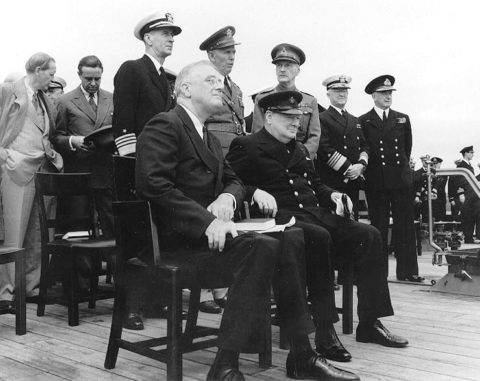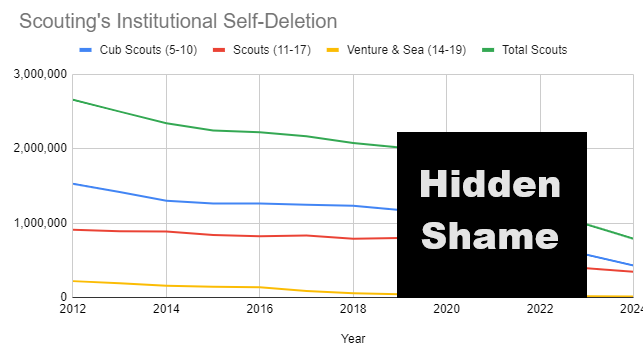Tasting History with Max Miller
Published May 28, 2024Slow-cooked molasses barbecued pork with a vinegary sauce
City/Region: United States of America
Time Period: 1839 | 1879“Barbecue” the cooking technique has been around for a lot longer than “barbecue” the word, but it has always been a delicious way to prepare meat. This is the earliest recipe I could find for something called barbecue, and I paired it with a sauce from 40 years later that seems to me to be a precursor to vinegar-based Carolina style barbecue sauces.
The meat is super tender and falls apart. I ended up needing to cook mine for about 12 hours, but it was worth it. You really don’t need anything besides a bit of salt to go with it, but the sauce is a delicious pairing. It packs a spicy, flavorful punch, but it’s surprisingly not too vinegary.
To Barbecue Shoat.
Take either a hind or fore quarter, rub it well with salt, pepper, and a small portion of molasses, and if practicable, let it lie for a few hours; then rinse it clean, and wipe it dry with a cloth, and place it on a large gridiron, over a bed of clear coals. Do not barbecue it hastily, but let it cool slowly for several hours, turning it over occasionally, and basting it with nothing but a little salt-water and pepper, merely to season and moisten it a little. When it is well done, serve it without a garnish …”
— The Kentucky Housewife by Lettice Bryan, 1839.As the housekeeper is sometimes hurried in preparing a dish, it will save time and trouble for her to keep on hand a bottle of meat-flavoring compounded of the following ingredients.
2 chopped onions. 3 pods of red pepper (chopped). 2 tablespoonfuls brown sugar. 1 tablespoonful celery seed. 1 tablespoonful ground mustard. 1 teaspoonful turmeric. 1 teaspoonful black pepper. 1 teaspoonful salt. Put it all in a quart bottle and fill it up with cider vinegar.
— Housekeeping in Old Virginia edited by Marion Cabell Tyree, 1879.
September 4, 2024
The History of Barbecue
September 3, 2024
The End of World War Two – WW2 – Week 314B – September 2, 1945
World War Two
Published 2 Sep 2024The Japanese sign the official document of surrender and the Second World War is over. There are still some Japanese garrisons yet to surrender, but they begin doing so one after the other. However, war is not over — and there is serious foreboding for future events in places like Vietnam and China — where Mao Zedong is meeting with Chiang Kai-Shek, even as Josef Stalin lurks in the background to secure Soviet interests no matter which Chinese regime comes out on top.
00:00 Intro
00:59 Vietnam Declares Independence
04:04 The Importance Of Manchuria
06:28 Japan’s Surrender
11:22 The Final Surrenders
13:18 Casualties
15:50 The End
(more…)
Second Amendment case involving switchblades in Massachusetts
J.D. Tuccille summarizes a (surprising) court decision in Massachusetts which struck down a state law banning switchblade knives:

“IMGA0174_tijuana” by gregor_y is licensed under CC BY-SA 2.0 .
The Second Amendment to the United States Constitution undisputedly protects the individual right to own and carry firearms for self-defense, sport, and other uses. But the amendment actually says nothing about guns; it refers to “the right of the people to keep and bear Arms”, of which firearms are just one example of what dictionaries define as “a means (such as a weapon) of offense or defense”. In Massachusetts, last week, that resulted in a decision by the state’s highest court striking down a law against switchblade knives.
Protected by the Second Amendment
“We conclude switchblades are not ‘dangerous and unusual’ weapons falling outside the protection of the Second Amendment,” wrote Justice Serge Georges Jr. for the court in an opinion in Commonwealth v. Canjura that drew heavily on two landmark U.S. Supreme Court cases: Bruen (2022) and Heller (2008). The decision found the state’s ban on switchblade knives unconstitutional and dismissed charges against the defendant.
The case involved a 2020 dispute between David E. Canjura and his girlfriend, during which Boston police officers found a switchblade knife on Canjura while searching him. As is often noted, “everything is illegal in Massachusetts” and “a switch knife, or any knife having an automatic spring release device” is only one of a long list of weapons proscribed under state law. Canjura was accordingly charged.
Such absolute prohibitions on arms aren’t permitted in the wake of the Heller decision, so Canjura and his public defender, Kaitlyn Gerber, challenged the ban on switchblades, citing the federal decisions. They also relied on Jorge Ramirez v. Commonwealth (2018) in which the Massachusetts Supreme Judicial Court overturned a similar prohibition on stun guns on Second Amendment grounds.
“We now conclude that stun guns are ‘arms’ within the protection of the Second Amendment. Therefore, under the Second Amendment, the possession of stun guns may be regulated, but not absolutely banned,” the court found in that case.
Canjura required similar analysis based on the same earlier decisions, this time with Ramirez in the mix.
The Second Amendment Protects All “Bearable Arms”
Citing Heller, Justice Georges pointed out, “the Second Amendment extends, prima facie, to all instruments that constitute bearable arms, even those that were not in existence at the time of the founding”. Importantly, though, knives and other bladed weapons have a long history, extending back well before the birth of the country.
“A review of the history of the American colonies reveals that knives were ubiquitous among colonists, who used them to defend their lives, obtain or produce food, and fashion articles from raw materials,” commented Georges. Folding knives, in particular, grew in popularity to the point they became “almost universal”. The court saw no significant difference between the many types of folding knives used over the centuries and spring-assisted varieties developed somewhat more recently, finding “the most apt historical analogue of a modern-day switchblade is the folding pocketknife”.
QotD: The Libertarian Party clown car
Why are libertarians like this? I see no reason why people who value liberty in the social and economic sphere must also be weirdos who probably eat the silica packet in a beef jerky pouch because it says “DO NOT EAT” and they don’t like being bossed around. I have some sympathy for libertarian positions: I’m socially more liberal than basically every Republican, and I like markets more than most Democrats. But I also know a fully stuffed clown car when I see one, and the Libertarian Party is very much that. And lest you think that this week’s convention was a rare foray into Crazytown, here are some events that establish the Libertarian Party as a tenth-generation Crazytown family whose antecedents are featured on the city crest.
Jeff Maurer, “Why Can’t the Libertarian Party Be Normal?”, I Might Be Wrong, 2024-05-28.
September 2, 2024
“Queering Nuclear Weapons” … no, don’t laugh because it isn’t funny
At Postcards From Barsoom, John Carter looks into what at first seemed like a less-than-brilliant headline from The Babylon Bee, but is actually a much more serious concern:
Nuclear security is, I’m sure you do not need to be convinced, a deeply serious matter. Ever since we cracked the atom over Hiroshima our civilization has been walking a tightrope over an abyss. A single misstep could mean annihilation – hundreds of millions dead within minutes, billions within days. Doubtless there would be some survivors, but it’s doubtful that industrial civilization would survive. We’ve come within a hair’s breadth of this a few times, not only in the Cuban Missile Crisis, but on other occasions, when radar mulfunctions or computer glitches left launch officers in the USA and the former USSR unsure whether or not to press the big red buttons they were entrusted with. Fortunately for everyone, they didn’t. If they had, none of us would be here.
Nuclear power plants can be almost equally dangerous. We saw the consequences of mismanagement in the 80s, with Chernobyl. Political officers who had no idea what they were doing covered up one screw-up after another. The results horrified a continent and poisoned the good name of the nuclear energy to this day.
Nuclear security, of civilian infrastructure and especially of the strategic weapons reserve, is the kind of thing that you want deeply serious men in charge of. The kinds of guys who wear impeccable grey suits, didn’t laugh because they don’t think your joke is funny, and have multiple degrees in military history and nuclear physics.
[…]
And now, here we are again. The Department of Energy’s new Special Assistant for National Nuclear Security Administration, one Sneha Nair, is also the author of an article titled Queering nuclear weapons: How LGBTQ+ inclusion strengthens security and reshapes disarmament.
The National Nuclear Security Administration is a semi-autonomous alphabet agency responsible, as its name implies, for maintaining the security and efficacy of the USA’s nuclear weapons stockpile. Its remit also includes preventing the proliferation of WMDs, overseeing the provision of nuclear propulsion for the US Navy, and responding to radiological emergencies.
These are not small things to be responsible for, and one of their newly appointed senior administrators is apparently obsessed with painting rainbows on the warheads.
Let’s have a look at her.
Unlike Brinton, Nair doesn’t obviously look like a spiteful mutant. No aposematic hair colouring, no facial piercings, no obvious tattoos, nor any other obvious signs of mental illness. Her Xitter account doesn’t even proclaim her pronouns.
So unlike Brinton, there’s no obvious evidence that she’s a sexual deviant. By all appearances, she’s merely another overly earnest head girl, looking to burnish her virtue via demonstrative allyship.
Most of the media coverage was just lol’ing at the woke absurdity of the title of Nair’s article – what could adult diapers, dildos, bugchasing, and Monkeypox possibly have to do with preventing the fiery nuclear annihilation of the human species? Aside, that is, from keeping the observably mentally ill as far from the big red button as possible? What fresh madness is this? But we’re all inured to the regime’s infinite absurdity, these days, so after having a sensibly cynical chuckle we all moved on. I shrugged and moved on myself, until a few days ago when Stelios Panagiotou of Podcast of the Lotus Eaters took the time to actually read Nair’s work. What he found wasn’t lolcow fodder. It was deeply sinister.
September 1, 2024
Can Chiang and Mao Unite China? – WW2 – Week 314 – August 31, 1945
World War Two
Published 31 Aug 2024Mao Zedong takes his first ever journey by plane to go and meet with Chiang Kai-Shek. They begin what will be several weeks of talks and negotiations. However, Chiang is not aware that Josef Stalin is lurking in the background. And the Soviet Red Army is lurking in Manchuria, having defeated the Japanese there, and are giving tacit support to the Chinese Communists, whose power base is very strong in the north. As for Japan, a motley collection of Allied fleets arrives in Tokyo Bay, for Japan’s surrender document is to be officially signed two days from now.
(more…)
August 31, 2024
Kamala deigns to speak to the loyal, pantingly eager sycophantic press … briefly
At Spiked, Brendan O’Neill seems somehow underwhelmed by Kamala Harris and Tim Walz descending from Olympus to grace poor mortals as they appeared on CNN on Thursday night for their first big media appearance:
Yesterday, finally, the kween deigned to engage with her subjects. Yes, Kamala Harris did her first sit-down media interview since replacing Joe Biden on the Democratic presidential ticket nearly 40 days ago. For more than a month she’d maintained a monarchical distance from the grubby presses, flat-out refusing a one-to-one with any of its probing hacks. Now she’s relented and had an exclusive chat with CNN’s Dana Bash. The end result? Only one word will do, and it’s a word normally aimed at the other side: weird.
Seriously, can we talk about this shitshow? It is hands down the oddest “first big interview” I’ve seen with a candidate for high office. It took place at Kim’s Cafe in Savannah, Georgia and none of it made sense. Even the lighting was off – it’s the first time I’ve seen Kamala look bad. The angles were all wrong, meaning Harris, the supposed colossus of joy who will transform America, looked scrunched and tiny between Tim Walz and Ms Bash. And what was VP pick Walz even doing there? Chaperoning? “Strong, Capable Woman Asks Man To Come With Her To Job Interview In Case They Ask Any Hard Questions”, quipped the Babylon Bee.
They had no worries on that front. There were no hard questions. The ass-kissage was off the scale. Bash didn’t only give Harris easy questions – she gave her the answers, too. The most extraordinary moment was when she gently prodded Harris on her flip-flopping over policy. Finally, I thought, a tricky query. But then she told Harris what to say. “Is it because you have more experience now and you’ve learned more about the information?”, she wondered. The way Harris’s face lit up when she was handed this oven-ready excuse for her chameleon-like politics – even in the bad lighting you could see her glee at CNN’s servility to the Kamala cause.
A more objective broadcaster – hell, a kid with a camera fresh out of journalism school – would have dragged Harris for her vagueness. She issued flat platitudes. She engaged in Orwellian gobbledygook about how her policies might have changed but her “values” haven’t – eh? She spoke in tongues about climate change – it’s “an urgent matter to which we should apply metrics that include holding ourselves to deadlines around time”, she said, like a schoolkid padding out an essay with superfluous adjectives. And Bash just sat there, smiling. Maybe everyone in DC speaks like this?
Some of Harris’s volte-facing really is extraordinary. She once said she would ban fracking, now she says she won’t. And how on Earth did she go from comparing US Immigration and Customs Enforcement (ICE) to the KKK and saying “an undocumented migrant is not a criminal” to now saying we must sternly enforce our nation’s borders? “I think the most important and most significant aspect of my policy perspective and decisions is my values have not changed”, she said. There’s that padding again. Sixteen words in that sentence are unnecessary. And the remaining five – “My values have not changed” – are not true.
August 30, 2024
The urge to power
At Mindset Shifts, Barry Brownstein explains why the urge to gain power over other people is particularly strong in those who don’t have meaningful lives of their own:

King Louis XIV, the “Sun King”.
Portrait by Hyacinthe Rigaud (1659-1743) sometime in 1700 or 1701 from the Louvre via Wikimedia Commons.
One of my more memorable exchanges with a student came in a principles of economics class. Part of the assignment for that week was chapters from Matt Ridley’s The Rational Optimist. Ridley compared the living standards of an average worker today with those of The Sun King, Louis XIV, in 1700. Some of my more ahistorical students were incredulous at Ridley’s description of the grinding poverty of the average person just a few centuries ago.
The King had an opulent lifestyle compared to others. Louis had an astonishing 498 workers preparing each of his meals. Yet his standard of living was still a fraction of what we experience today.
Ridley outlined the miracles of specialization and exchange in our time — an everyday cornucopia at the supermarket, modern communications and transportation, clothing to suit every taste. If we remove our blinders and see how many individuals provide services to us, Ridley concludes we have “far more than 498 servants at [our] immediate beck and call”.
Then, the memorable exchange occurred. One student shared that he would prefer to live in 1700, if he had more money than others and power over them. My first reaction was amusement; I thought the student was practicing his deadpan humor skills. He wasn’t. For him, having power was an attribute of a meaningful life.
If only my student’s mindset were an aberration.
During the reign of Louis XIV, French mathematician and philosopher Blaise Pascal diagnosed why some lust for power. In his Pensées, Pascal wrote, “I have often said that the sole cause of man’s unhappiness is that he does not know how to stay quietly in his room”. Pascal explained that, out of the inability to sit alone, arises the human tendency to seek power as a diversion.
Pascal asks us to imagine a king with “all the blessings with which you could be endowed”. A king, Pascal told us, if he has no “diversions” from his thinking, will “ponder and reflect on what he is”. Pascal’s hypothetical king will be miserable because he “is bound to start thinking of all the threats facing him, of possible revolts, finally of inescapable death and disease”.
“What people want is not the easy peaceful life that allows us to think of our unhappy condition.” That is why “war and high office are so popular”, Pascal argued.
Pascal argues individuals seek to be “diverted from thinking of what they are”. I would argue a better choice of words is what they have made of themselves.
I’ll let the reader decide how many modern politicians Pascal’s ideas apply to. With Pascal’s insight, we understand why conflict is a feature of politics and not a bug.
Pascal spares no one’s feelings. Some “seek external diversion and occupation, and this is the result of their constant sense of wretchedness”. For them, “rest proves intolerable because of the boredom it produces. [They] must get away from it and crave excitement.”
Let that sink in. A person able to exercise coercive power can use their morally undeveloped “wretched” mind to create endless misery for others merely because exercising power distracts them from their failures as human beings.
August 29, 2024
Britain’s empire after WWII
From my readings about the behind-the-scenes negotiations among the western allies even before the United States formally entered the war in late 1941, I’ve always felt that the personal relationship between Winston Churchill and Franklin Delano Roosevelt was at least as important as the formal public proclamations and direct actions of the allies. It’s my belief that Churchill and FDR had a “wink and a nod” agreement for the US to continue supporting the British economy after the end of the war in Europe, probably in exchange for a gradual retreat from formal Imperial control over at least some of the remaining British colonies. This would have made Britain’s immediate postwar experience far less grim economically and politically and allowed the British economy to gracefully switch from full wartime production to fulfilling peacetime business and consumer needs.

Church services on HMS Prince of Wales, in Placentia Bay, Newfoundland, during the Atlantic Charter Conference. President Franklin D. Roosevelt (left) and Prime Minister Winston Churchill are seated in the foreground. Standing directly behind them are Admiral Ernest J. King, USN; General George C. Marshall, U.S. Army; General Sir John Dill, British Army; Admiral Harold R. Stark, USN; and Admiral Sir Dudley Pound, RN. At far left is Harry Hopkins, talking with W. Averell Harriman.
US Naval Historical Center Photograph #: NH 67209 via Wikimedia Commons.
Of course, with Roosevelt dead (and Truman certainly not “read-in” on any unwritten promises to the British) and Churchill out of office (which was as much of a shock to the Americans as it was to Churchill himself), whatever they may have hoped to do was now so much wishful thinking. Britain had to not just continue wartime rationing after VE and VJ Day, but to actually make it more stringent for nearly a decade just to avoid national bankruptcy … and the withdrawal from imperial outposts had to be done as quickly and as cheaply as possible. This often meant corners were cut, cheeses were pared, and shortcuts availed of, so that the experiences of the former colonies were more fraught with civil disturbances and commercial disruptions than they should have been.
All of this is a very long-winded way to introduce Joshua Treviño’s post at Armas which considers how an American imperial decline may or may not mirror the postwar British experience of de-imperialization:
We can guess that American decline under the present regime will look much like Britain’s. The British case is taken as so normative — of course a nation will decline after its empire is gone — that the normativity goes unquestioned. But this is the worst sort of history, determinative in retrospect, as if the loss of imperium (or more properly, the loss of imperial fiscal stability) set in motion dominoes that fell unstoppably until the latest squalid episode of Keir Starmer’s thought police. That isn’t how human events work, however: all things are contingent. Britain was, in the eyes of several European powers, reduced to a mid-tier power after the catastrophic loss of America at the opening of the 1780s — and a generation later it was the indispensable nation versus French hegemony. There was not any particular reason a comparable recovery ought not have happened in the generation after 1945, even with the loss the of the empire, and even with the great postwar crisis of the pound sterling. This was in fact the high-Tory view as set forth by Enoch Powell, who evolved toward a belief that the empire was a burden on Britain, which could ascend to its destiny and fulfillment by means of the British themselves.
That this did not happen is plausibly much the fault of the Americans, who did two major things — one of them unwittingly — to forestall this sort of recovery. The first act, undertaken with deliberation, was the credible American threat to destroy the United Kingdom’s finances and economy in the 1956 Suez crisis: in no way the act of an ally, and one whose psychological effects upon Britain’s governing elites were as significant as the hard-power effects upon Britain itself. (Though I am not a particular fan of De Gaulle, for reasons that may be discussed here later, he was unquestionably a better steward of the nation than his U.K. counterparts in his conclusion — admittedly coalescing a decade earlier — that a European state could be a major power, or it could be a junior partner to the United States, but not both.) The British regime’s reaction to the episode — to draw so close to the Americans as to abandon the nation’s strategic independence — thereby contributed powerfully to Britain’s subsequent diminishment. That diminishment was not simply in the realm of hard power: it was accompanied by a profound social and governmental malaise that has fluctuated across the decades but has yet to lift. Philip Larkin’s 1969 Homage to a Government captures it well:
Next year we are to bring all the soldiers home
For lack of money, and it is all right.
Places they guarded, or kept orderly,
Must guard themselves, and keep themselves orderly
We want the money for ourselves at home
Instead of working. And this is all right.It’s hard to say who wanted it to happen,
But now it’s been decided nobody minds.
The places are a long way off, not here,
Which is all right, and from what we hear
The soldiers there only made trouble happen.
Next year we shall be easier in our minds.Next year we shall be living in a country
That brought its soldiers home for lack of money.
The statues will be standing in the same
Tree-muffled squares, and look nearly the same.
Our children will not know it’s a different country.
All we can hope to leave them now is money.The superficial read of Larkin here is that he laments deriving purpose from other things closer to home. There is a baseness in the imperialist’s love of mission, and he misses the sublime in, say, the National Health Service. It is a dumb atavism: if the “tree-muffled squares … look nearly the same”, then why does it matter that “the soldiers [are] home”? This interpretation is wrong. What Larkin laments is the loss of the common and noble purpose in the civic partnership that makes the nation, as defined at the outset of Aristotle’s Politics — without which the nation fails to cohere, even if its regime persists. Despite the strenuous efforts of the left and progressivism across the past century, that virtuous end to which the nation has been directed has never been supplanted in its old forms — religion, glory, strength, creation — by any new ones of social programs or millennialist materialism. When Clement Attlee wrote in his 1920 The Social Worker that the Protestant Reformation was to blame for the moral degradation of charity, his solution was not the obvious one (which is to say, the restoration of Catholic England or at least its mores), but to interpose government where religion and its purposes used to be. His 1945 general-election invocation of building “Jerusalem” in England, directly quoting William Blake, logically followed.
But that is not how Jerusalem is built. It remains unbuilt, and the civic effects of the American fixation and what it facilitates redound across time. Nick Cohen accuses the modern British right of Americanizing itself, and that is largely accurate, but contra his indictment, the British left does the same in different ways. What the Americans did in 1956 was not a singular event — rather it was a punctuation on a process that had been unfolding in stages for the preceding forty years or so — but their objects got a vote too. That vote was to submit, a preference shared across right and left alike. That no American regime ever had Britain’s interest fully at heart (a truth with ample reminders, not just at Suez, but in Northern Ireland, in the Falklands, in Grenada, in Iraq, and in Afghanistan) did not alter this course, thereby making a triumph of theory unmoored from fact.
How activists used lawfare to force the Boy Scouts to go woke (and then go broke)
A guest post from Cole Noble at Postcards From Barsoom discusses how progressive organizations and political activists have managed an immense take-over of the great outdoors, not least of which were the legal and political efforts to force the Boy Scouts of America to accept gay scouts and scout masters:
[…] This entertainment ecosystem, increasingly infested with culture warriors, also started chipping away at the longstanding prestige of organizations like the BSA [Boy Scouts of America]. Depicting someone as a scout became a kind of character development shorthand, signalling them as uncool.
The targeting wasn’t incidental; the existence of the pre-centennial BSA was a serious problem for the ruling class. Their organization’s commitment to values-based conservation served as living proof that going along with society’s adoption of critical theory was completely optional. If the BSA was free to refuse the push, others might start getting ideas.
Lawfare was inevitable.
In 2000, the United States Supreme Court heard Boy Scouts of America v. Dale. In one corner you had James Dale, an avowed gay rights activist, co-president of the Rutgers University Lesbian/Gay Alliance, and outspoken advocate for gay teens having gay role models. In the other, you had the BSA, who didn’t want someone like Dale around its young, impressionable members.
The BSA won, but there was blood in the water. Culture warriors circled back around, this time employing social pressure. They tried to make their demand sound as reasonable as possible: drop the policy against openly gay members. Just one teeny tiny rule. What’s the point anyway? It’s outdated. No real sense keeping it, right?
Smart members of the program clocked this Trojan Horse from miles away. Alas, the organization’s leadership did not. Possessing both the physique and fortitude of rice pudding, they caved, capitulated, and acquiesced some more — agreeing to an ever-escalating series of demands that hollowed out the once-proud group into an empty vessel for The Current Thing(TM).
The Boy Scouts of America is now all-inclusive! Not just to gay scouts and leaders, but girls too. In a show of solidarity with Black Lives Matter after the riots of 2020, a mandatory DEI merit badge has replaced camping as a requirement to attain the once coveted rank of Eagle Scout.
Let’s not forget the Scout Masters now left to deal with teens using the program’s overnight trips as cover for hookups.
Oh, and they went bankrupt.
The organization agreed to a 2.5 billion dollar settlement over tens of thousands of sex abuse cases perpetuated by adult men, against underage boys.
Rather than bolster ranks, adopting DEI cost the organization more than 1 million members.
The BSA – sorry, Scouting America1 – didn’t publish annual membership reports from 2020 to 2022, I imagine out of embarrassment. During this time, the Mormons, who used Scouting as a youth program for its boys, took their 400,000 members, and their money, and left.
[…]
Scouting was one of, if not the last bastion of quasi-unstructured outdoor activities. While the death of free-range childhood seems to be commonly understood, there is some debate about the precise cause.
Whatever your opinion on the matter, regime journalists shoulder enormous responsibility for eroding societal trust and inspiring mass paranoia through sensational reporting. Former latchkey kids became hysterical helicopter parents, petrified of letting their children out of sight.
Playing outside became a heavily supervised affair, usually relegated to fenced-in backyards with locking gates.
Kids have been robbed of the experiences that could lead them to develop an organic appreciation for outdoor recreation, and groomed into a hypersexualized version of early adulthood. All the while, the institutions which once taught conservation and virtue now serve as apparatuses of critical theory.
1. They changed their name in May of 2024, after 114 of being the Boy Scouts. Since they’re no long the Boy Scouts, this is at least honest.
Cole’s own Substack is Quandary Magazine, which you should check out if you’re generally interested in the great outdoors.
August 28, 2024
The Korean War Week 010 – MacArthur and the Incheon Meeting – August 27, 1950
The Korean War by Indy Neidell
Published 27 Aug 2024Douglas MacArthur has a plan for an amphibious invasion of Incheon, and he thinks it will turn the tide of the war. This week comes his heavy pitch to be allowed to do it to the powers-that-be among American command. The war in the field continues as the UN forces win the Battle of the Bowling Alley, but an air force attack accidentally hits targets over the border in China. Mao Zedong is furious. Also, MacArthur gets flak this week from the President for outspokenly advocating actions counter to US official policy with regard to China, so the Chinese situation grows ever more tense.
Chapters
01:28 Battle of the Bowling Alley
04:14 U.N. Air Power
06:46 Supply Issues
09:05 The British are coming
10:55 Incheon Plans
14:52 The Incheon Meeting
17:06 MacArthur and the VFW
20:25 KPA Plans for Next Week
21:24 Summary
(more…)
H.R. McMaster dishes on Trump’s first term in office
In Reason, Liz Wolfe covers some of the head-scratchers former National Security Advisor H.R. McMaster revealed about working for Donald Trump:

Donald Trump addresses a rally in Nashville, TN in March 2017.
Photo released by the Office of the President of the United States via Wikimedia Commons.
What might a second Trump White House be like? In his new book, At War with Ourselves: My Tour of Duty in the Trump White House, Lt. Gen. H.R. McMaster, who served as national security adviser to Donald Trump (for one year), characterizes Oval Office meetings as “exercises in competitive sycophancy” where advisers would greet him with lines like “your instincts are always right” or “no one has ever been treated so badly by the press”.
Trump, meanwhile, would come up with crazy concepts, and float them: “Why don’t we just bomb the drugs?” (Also: “Why don’t we take out the whole North Korean Army during one of their parades?”)
This is one man’s account, of course. McMaster’s word should not be taken as gospel, and some of his frustration might stem from his dismissal, or his foreign-policy prescriptions being at times ignored by his boss. But it’s a somewhat revealing look behind the curtain at policy-setting in a White House helmed by an especially mercurial commander in chief, who “enjoyed and contributed to interpersonal drama in the White House and across the administration”.
It also shows how quickly Trump fantasies have percolated through the Republican Party, namely the “let’s just bomb Mexico to get rid of the cartels” line, which Trump has been toying with since roughly 2019 (or possibly more like 2017, after he chatted with Rodrigo Duterte, former president of the Philippines, who had promised to kill 100,000 drug traffickers during his first six months as president). A few years prior, in 2015, he had suggested that Mexico was sending rapist and drug-traffickers across the southern border, and that we’d need to build a wall between the two countries, but it wasn’t until nine American citizens were killed in Mexico that Trump trotted out the idea of declaring cartels foreign terrorist organizations and using military might to eradicate them.
Trump’s line from 2019 has now become standard fare, notes The Economist: The Republican primary debates included lots of tough talk on Mexico, specifically on the bombing front, with Florida Gov. Ron DeSantis claiming he’d send special forces down there on Day One. Right-wing think tanks have embraced the messaging, with articles headlined “It’s Time to Wage War on Transnational Drug Cartels”. Taking cues from other members of her party, Georgia Rep. Marjorie Taylor Greene asked why “we’re fighting a war in Ukraine, and we’re not bombing the Mexican cartels”. Whether it’s economic protectionism (10 percent across-the-board tariffs, with 60 percent tariffs imposed on Chinese imports) or Mexico-bombing, Trump has near-magical abilities to get other members of his party to accept something previously regarded as absurd.
August 26, 2024
David Friedman – “my fargroup … are being attacked by my outgroup. My enemy’s enemy …”
I’m much of David Friedman‘s opinion on the candidates for both the Democratic and Republican parties in the current US presidential election … and I also find myself leaning more toward Trump even though his re-election would almost certainly be worse for Canada:

Donald Trump, surrounded by Secret Service agents, raises his fist after an attempt on his life during a campaign speech in Butler, PA on 13 July, 2024.
My opinion of the election is “a plague on both your houses”. Kamala Harris is an extreme representative of an ideology I have opposed for most of my life. Donald Trump has three major positions on two of which, immigration and trade, he manages to be even worse than his opponent. While I have some sympathy for his views on the third — I have been arguing against an interventionist foreign policy for something over fifty years now — I do not trust him to execute a consistent and competent alternative. His disinterest in whether what he says is true, extreme even for a politician, I find offensive.
That is my intellectual view of the matter. It is not my emotional view. Reading news stories and observing the effect on my feelings, I note that I am reacting like a Trump partisan. Poll results that look good for him make me happy, poll results that look bad for him make me sad. Accounts of outrageous statements by Trump or Vance I ignore — I don’t expect them to tell the truth. Accounts of demagoguery by Harris or Waltz arouse feelings of indignation. If Harris wins I will feel disappointed. If Trump wins I will feel relieved, at least until the first outrageous thing he does.
The explanation of my inconsistent reaction is provided by Scott Alexander in “I Can Tolerate Anything Except The Outgroup“, one of the best of his many good essays. In it he points out that someone’s outgroup, the group for whom he feels and expresses strongly negative views, is typically made up not of people distant from him, geographically and intellectually, but of people close. The outgroup of the Nazis was not their Japanese allies or the Chinese the Japanese were fighting, it was German Jews, people with the same language and, in most respects, the same appearance and culture. The outgroup of American leftists is not Muslim fundamentalists but American conservatives.
Conservatives have doubts about gay marriage. Muslim fundamentalists view homosexual intercourse as a capital offense.1 American conservatives would like their schools to be more tolerant of creationism. Muslim fundamentalists want their schools to teach the truth of Islam. And yet, when conservatives criticize Muslims, leftists defend them. When Muslims kill Jews and Jews respond by killing Muslims, it is the Muslims that the American leftists support, the Jews that they blame — although Israelis have much more in common, ideologically as well as culturally, with American leftists than Palestinians do.
We think of groups close to us in Near Mode, judging them on their merits as useful allies or dangerous enemies. We think of more distant groups in Far Mode – usually, we exoticize them. Sometimes it’s positive exoticization of the Noble Savage variety (understood so broadly that our treatment of Tibetans counts as an example of the trope). Other times it’s negative exoticization, treating them as cartoonish stereotypes of evil who are more funny or fascinating than repulsive. Take Genghis Khan – objectively he was one of the most evil people of all time, killing millions of victims, but since we think of him in Far Mode he becomes fascinating or even perversely admirable – “wow, that was one impressively bloodthirsty warlord”. (Scott Alexander, “Post-Partisanship Is Hyper-Partisanship“)
Conservatives are the leftists’ outgroup, Muslims their far group. The far group can be ignored; large parts of the world are more sexist and more racist than any part of America but invisible to progressives campaigning against sexism and racism. The far group can even be supported, at least if the outgroup is attacking it. My enemy’s enemy is my friend. Muslim fundamentalists. Hamas.
Kamala Harris is an American leftist. American leftists are my outgroup. Trump and Vance are American populists. I disagree with their views, in some cases more than I disagree with the views of American leftists, but I have nothing against them, just as I have nothing against believing Catholics or Orthodox Jews or Black Muslims or believers in Christian Science.
Trump and his movement are my fargroup. They are being attacked by my outgroup. My enemy’s enemy …
1. In some times and places Muslim culture has been tolerant of homosexuality; there are two famous medieval essays on the relative attractions of homosexual and heterosexual intercourse and quite a lot of poetry celebrating homosexual love. But the religious doctrine, which fundamentalists take seriously, holds homosexuality to be forbidden.
August 25, 2024
“Does your vote count?” or how to set up an automatic vote-generation scheme
Elizabeth Nickson on recent reporting about voting scams in various US states:
After engineer and data scientist Kim Brooks worked on cleaning the voter rolls in Georgia for a year, she realized she was on a stationary bicycle. She’d clear a name for various reasons, dead, felon, stolen ID, living at a seasonal campground for twenty years, duplicate, moved out of state, 200 years old, etc., and back it would come within a month. At that juncture she realized that a program within the Georgia voter registration database was methodically adding back fake names.
She looked deeper. For new registrants, the culprit was principally Driver’s Services creating new registrations and in this case, the manufacturer was a person, or persons. Within the government office, someone was stealing names and duplicating, even tripling that person’s vote and then forging their signature. Sometimes it was someone who just died, or a teacher who had no voting record. In the case of a nurse who died in 2022 with three registrations, she was registered to vote in two counties, and all three of her voted in the 2022 election and the 2024 primary. Each signature was slightly different, the last three letters spelled, ly, ley, and lley
This operation works under AVR, or automatic voter registration, and is being used to register migrants. They will not vote, but their names have been entered into the Voter Registration database when they apply for a driver’s license and their vote will be voted for them. I imagine that this is repeating something everyone knows, but the borders are open for precisely this reason, so the Democrat/RINO machine can steal their votes. By the way, the process for advancing permanent residency has been cut from 11 months to two.
In 2020, twenty states used operation AVR. Of those, Trump lost 18.
That’s because there are registration fraud rings, as identified in the Arabella doc. and in the work of Omega4America. This worked well in Michigan, where, according to Captain Seth Keshel, who is one of the leads on this fight, believes that Trump likely got 576,443 more votes than were counted and won Michigan by 8.5%.
Every state is host to a dozen or more NGO’s which do nothing but fill out ballots for the faked registrants. Peter Bernegger’s team in Wisconsin has video of NGO functionaries doing just that in Wisconsin in 2020 at 1 am, early morning after Election Day.
Michigan has two million more registered voters than they should have. 83.5% of the state is registered to vote but only 77.9% is over 18. – Seth Keshel
Seth works with demographic trends and does detailed statistical analysis; travelling almost ceaselessly to teach Americans how to stop the cheat. AVR was launched in Michigan, after Trump’s win in 2016. By 2020 there were 547,460 net new registrants in Michigan. Today, more voters are registered to vote than there are people old enough to vote. Keshel:
Per Keshel’s analysis, the Democrats and RINOs are frantically operating a dying political coalition which began to shift hard after Obama’s performance in his first four years, when not only did nothing change for the working class, it worsened. Democrat registrations in Michigan collapsed to the point where the Dems lost 16,000 as of 2016. Enter AVR and boom, 500+K new registrants.










